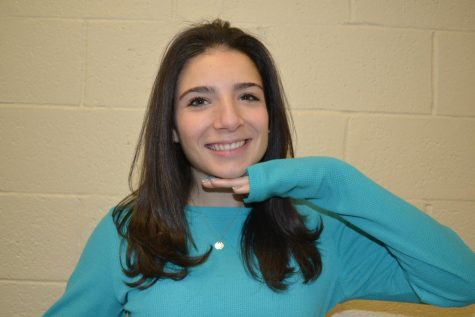OPINION: Unrealistic love overpowers on Valentine’s Day
Pop culture influences people to believe false ideas of love.
March 2, 2018
By Danielle Tabatneck
Whether it’s being appreciative for having loved ones, or being unsatisfied and wanting a significant other, Feb. 14 brings a mix of emotions in all people. Valentine’s Day allows individuals to recognize every form of love in their lives, from either family, friends or significant others.
Looking back to elementary school, Valentine’s Day was an exciting day of appreciating your loved ones and handing out Valentine candies to other students at school. It was thrilling to know that we would go home with a bag of goodies and cute letters to read from friends. What ever happened to this positive perspective of the Valentine’s Day?
When asking students about their opinions on Valentine’s Day, there is a mix of individuals who appreciate the holiday and others who find the holiday pretty miserable. People tend to blame their negative opinions of Valentine’s Day on the perfect idea of love that is shown through relationships in movies or couples posting together on social media.
“Social media creates unrealistic standards that are not true to reality,” junior Sadye Boshak said. “This makes Valentine’s Day a sore topic for some people.”
An example is known as the “Nicholas Sparks Effect,” where the author writes dramatic and passionate love stories that are eventually created as movies. Those who have seen or read his stories may have an unrealistic conception of love and how relationships work.
“Romantic love, the love the media portrays, is always passionate, never boring and arrives at a coasting point where everything is happily ever after,” health and physical education teacher Michael Markey said. “The dilemma is that a real relationship is often mundane and ordinary.”
Not only does Nicholas Sparks create this idea of a perfect relationship, but pictures of couples online has the same effect. Seeing a constant stream of happy couples gives the impression that relationships are perfect, when in reality, nothing may be considered “perfect.” These posts create an unrealistic example, which should not be used to create the definition of love, since love will always remain unique within every relationship.
“Social media makes Valentine’s Day seem impractical, so I can see how it may alter student’s perspectives on the holiday… almost like it makes people a hopeless romantic,” senior Natalie Guerra said.
The effect of movies and social media on students is overwhelming and is not fully understood until it is taken note of. Pop culture speaks to our emotions and tells us how we should live and what relationships should feel like. These effects are emphasized as the date approaches Valentine’s Day.
“Relationships constantly evolve and most people need to navigate growing together, and at times that may be messy, which is why the idea of happily ever after is so dangerous,” Mr. Markey said.
Students need to understand that the way they view love as a result of social media and movies is simply not ideal; these examples should not be used as a comparison to themselves and their own lives. People should spend their time recognizing all of the love in their lives rather than worrying about having a perfect movie romance. Without this realization, people will continue to think poorly of Valentine’s Day rather than understanding the main purpose of the holiday, to recognize and appreciate all forms of love.
It is one thing to hope for more love in one’s life, but it is another to wish for a specific kind of love that was once seen in a Nicholas Sparks movie.


